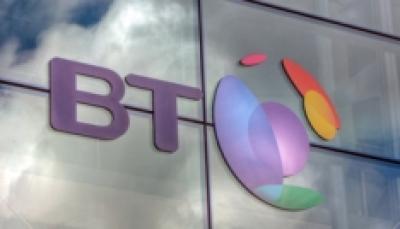BT May Appeal Against Line Rentals Set By Ofcom

Ofcom has set the price that BT can charge rivals for access to its network, but the carrier is considering an appeal
BT is considering launching an appeal after Ofcom officially set the wholesale line rental charges for BT Openreach.
These new wholesale charges set the limit over how much Openreach can charge rival ISPs to access BT telephone lines for broadband and telephone services.
Lower Prices
Last month Ofcom’s price proposals were submitted for approval to the EC, which had one month to comment.
The EC has made no changes to the Ofcom’s proposed prices, which sees the annual cost of a fully unbundled line to a property falling from £91.50 per year to £87.41 per year.
 A shared unbundled line to a property will drop from £14.70 a year to £11.92, and wholesale line rental (for telephone services using BT lines) will drop from £103.68 per year to £98.81 for financial year 2012/13.
A shared unbundled line to a property will drop from £14.70 a year to £11.92, and wholesale line rental (for telephone services using BT lines) will drop from £103.68 per year to £98.81 for financial year 2012/13.
“The price controls are designed to protect the interests of consumers while providing BT and communications providers with the appropriate incentives to continue to invest in networks and services,” said Ofcom in a statement.
BT Statement
But BT is not happy and told Techweek Europe that it is considering an appeal.
“As expected, following last month’s draft statement, Ofcom has today published the final charge controls for the Openreach LLU and WLR portfolio,” said BT in an emailed statement. “These controls, which are reviewed every three years, supersede those previously set by Ofcom.”
“We continue to disagree with some of the underlying assumptions they have used to determine these controls with our primary concern being that we are able to achieve a fair rate of return in order to continue our investment in the future of the UK’s communications infrastructure,” BT said. “Now that we have received Ofcom’s final decision, we will consider all options available to us, including appealing.”
Ofcom warned Openreach last year that it should cut its wholesale prices. Its prices are linked to the Retail Price Index (RPI), but Ofcom suggested that they should be adjusted in real terms as the cost of providing a network decreases.
Rural Price Cut?
Last July Ofcom also cut the wholesale price that BT can charge ISPs in parts of the country where it is the sole provider of wholesale broadband, i.e. in rural regions where BT’s lines are the only network connection to rural or semi rural areas, villages and towns.
Ofcom hoped that ISPs would pass the cost savings onto their rural customers, although these cost savings for rural broadband customers have largely not materialised, because Ofcom exempted ADSL 2+ technology from those charge controls.
BT is spending £2.5bn to roll out fibre two thirds of the UK, but for those unlucky enough to be stuck in the ‘rural broadband slow lane‘ will have to be satisfied with slow and old fashioned copper-based lines.
BT is upgrading most of these copper lines to ADSL2+, with should allow a theoretical maximum possible speed of (up to) 24Mbps, compared to the (up to) 8Mbps that many ADSL users supposedly get.
However, most rural users will see nowhere near these speeds due to the distance their houses and premises are from the closest telephone exchange.